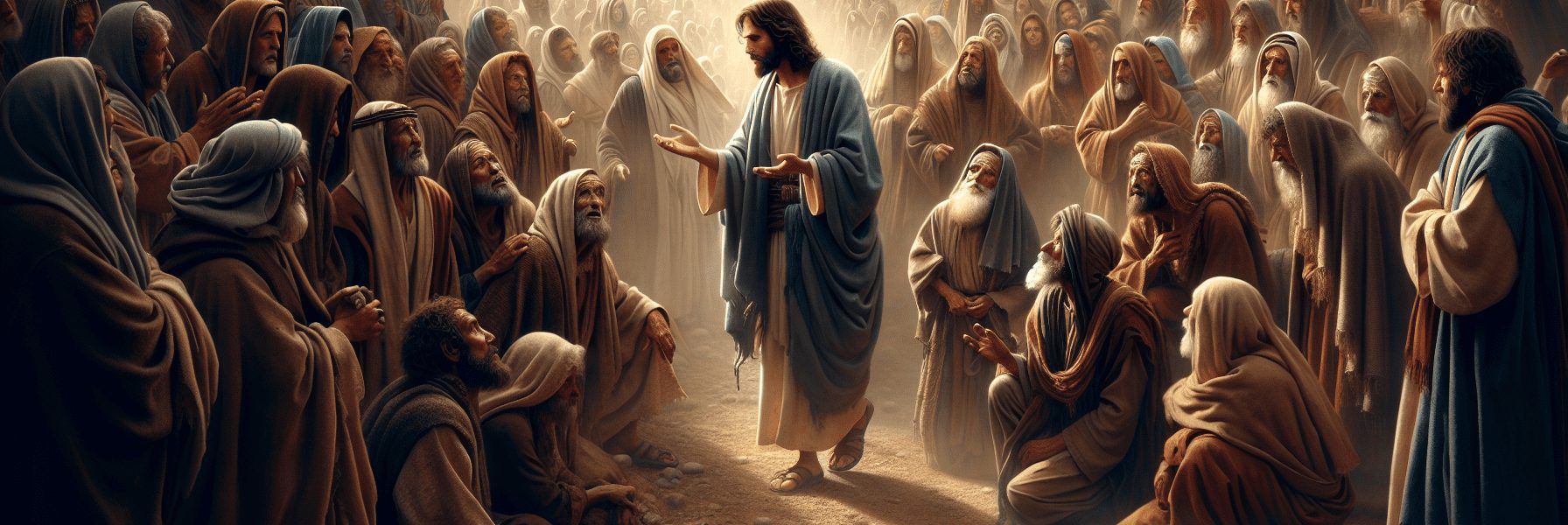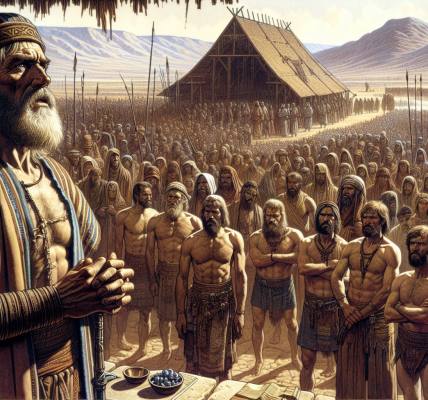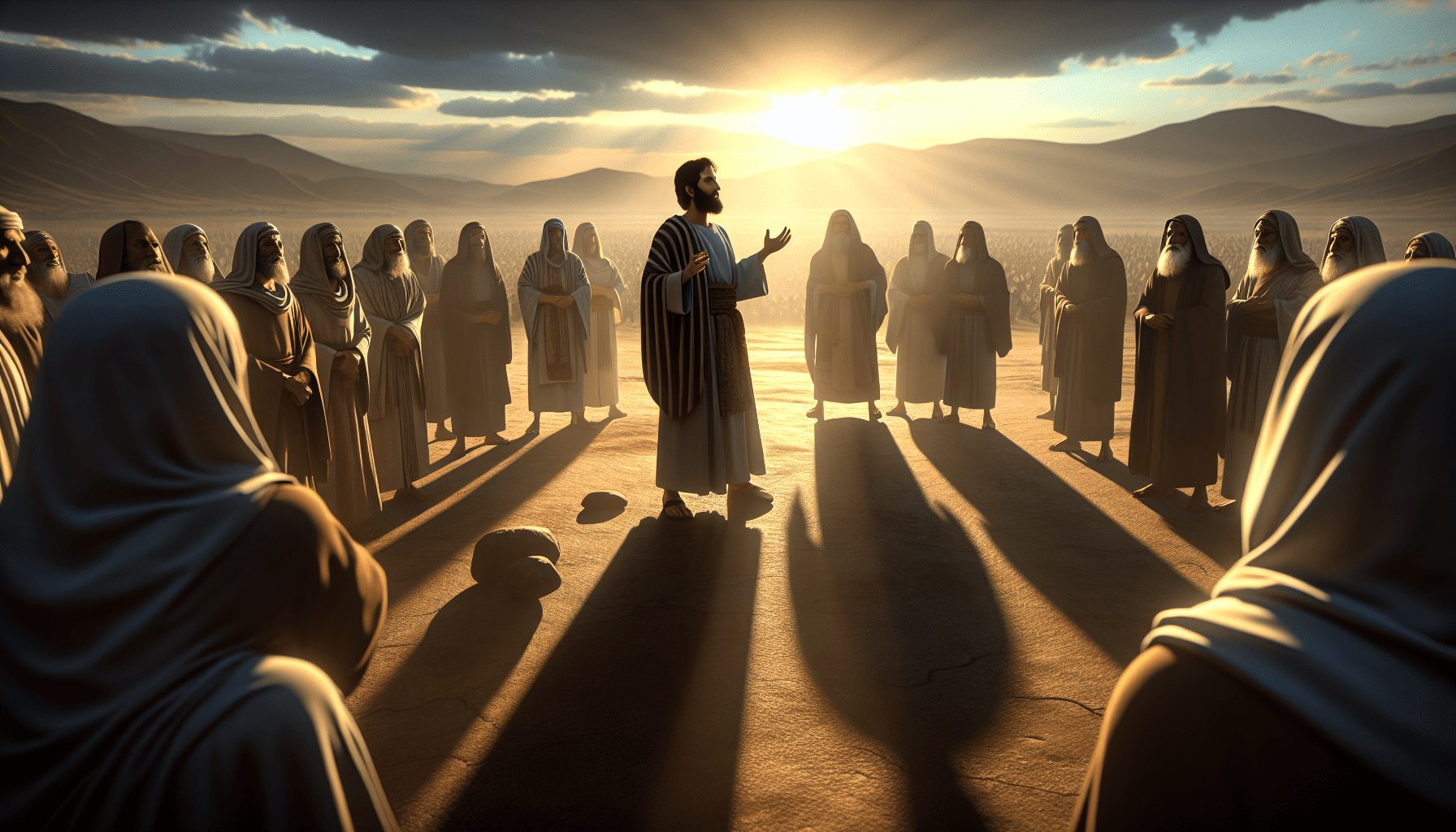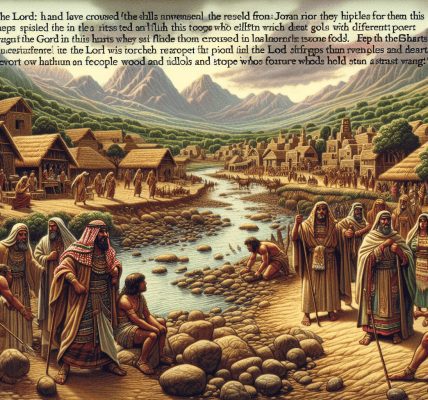**The Parable of the Shrewd Steward and the Rich Man and Lazarus**
The sun hung low over the dusty roads of Jericho as Jesus walked with His disciples, the dry earth crunching beneath their sandals. Around them, a crowd had gathered—Pharisees in their fine robes, tax collectors with calculating eyes, and peasants who clung to every word the Teacher spoke. Among them were those who loved Him and those who sought to trap Him. Sensing the tension, Jesus turned to them and began to speak, His voice carrying the weight of divine wisdom.
### **The Shrewd Steward**
“There was a certain rich man,” Jesus said, “who had a steward accused of wasting his goods.” The crowd leaned in, eager for the tale.
This steward had managed his master’s wealth carelessly, squandering olive oil, grain, and silver without thought. When word reached the rich man, he summoned the steward. ‘What is this I hear about you? Give an account of your stewardship, for you can no longer be manager.’
The steward’s heart pounded. Without his position, he would have no means to live—too weak for hard labor, too proud to beg. Then, a cunning idea struck him. ‘I know what I will do,’ he thought, ‘so that when I lose my job, people will welcome me into their homes.’
One by one, he called his master’s debtors. To the first, he asked, ‘How much do you owe my master?’
‘A hundred measures of olive oil,’ the man replied.
‘Take your bill, sit down quickly, and write fifty,’ the steward instructed.
To another, who owed a hundred measures of wheat, he said, ‘Write eighty.’
By reducing their debts, the steward secured their favor. When the rich man discovered what had been done, instead of rage, he marveled at the steward’s shrewdness. ‘The children of this world,’ Jesus explained, ‘are wiser in dealing with their own generation than the children of light.’
Jesus fixed His gaze on the Pharisees, whose love of money was no secret. “I tell you, make friends for yourselves by means of unrighteous wealth, so that when it fails, they may receive you into eternal dwellings.”
The crowd murmured. What could He mean?
“He who is faithful in little is faithful also in much,” Jesus continued. “If you have not been faithful in unrighteous wealth, who will entrust to you true riches? And if you have not been faithful in what belongs to another, who will give you what is your own?”
The Pharisees scoffed, their faces hardening. They loved money and derided Him. But Jesus, knowing their hearts, said, “You justify yourselves before men, but God knows your hearts. What is exalted among men is an abomination in the sight of God.”
### **The Rich Man and Lazarus**
Then, to drive His point deeper, Jesus told another story, His voice solemn.
“There was a certain rich man who dressed in purple and fine linen, feasting sumptuously every day.” The image was clear—a man of luxury, his table laden with roasted meats, figs, and wine, his fingers adorned with rings.
“And at his gate lay a poor man named Lazarus, covered with sores.” The crowd could almost see him—a wretched figure, his body ravaged by disease, his only comfort the dogs that licked his wounds. He longed for the crumbs that fell from the rich man’s table, but none were given.
Then came the great leveler—death. Lazarus died, and the angels carried him to Abraham’s bosom. The rich man also died and was buried. But in Hades, where he was in torment, he lifted his eyes and saw Abraham far off, with Lazarus by his side.
“Father Abraham!” the rich man cried out in agony, “Have mercy on me, and send Lazarus to dip the tip of his finger in water and cool my tongue, for I am in anguish in this flame!”
But Abraham replied, “Son, remember that in your lifetime you received your good things, and Lazarus evil things. But now he is comforted, and you are in anguish. Besides all this, a great chasm has been fixed between us, so that those who would pass from here to you cannot, and none may cross from there to us.”
Desperate, the rich man pleaded, “Then I beg you, father, send Lazarus to my father’s house—for I have five brothers—that he may warn them, lest they also come into this place of torment.”
Abraham answered, “They have Moses and the Prophets; let them hear them.”
But the rich man insisted, “No, father Abraham! But if someone goes to them from the dead, they will repent.”
Abraham’s reply was final. “If they do not hear Moses and the Prophets, neither will they be convinced if someone should rise from the dead.”
### **The Lesson**
The crowd stood in stunned silence. The Pharisees exchanged uneasy glances, their faces pale. Jesus had spoken not just of earthly wealth and poverty but of eternal consequences.
The disciples, too, pondered His words. The shrewd steward had used worldly wealth to secure earthly comfort—how much more should God’s people use their resources for eternal gain? And the rich man, who ignored the suffering at his gate, now suffered himself, with no hope of relief.
As the sun dipped below the horizon, Jesus turned to leave, His message clear: *The time to choose is now. For what is valued among men is worthless before God, and the day will come when every heart is laid bare.*
And those with ears to hear understood.




